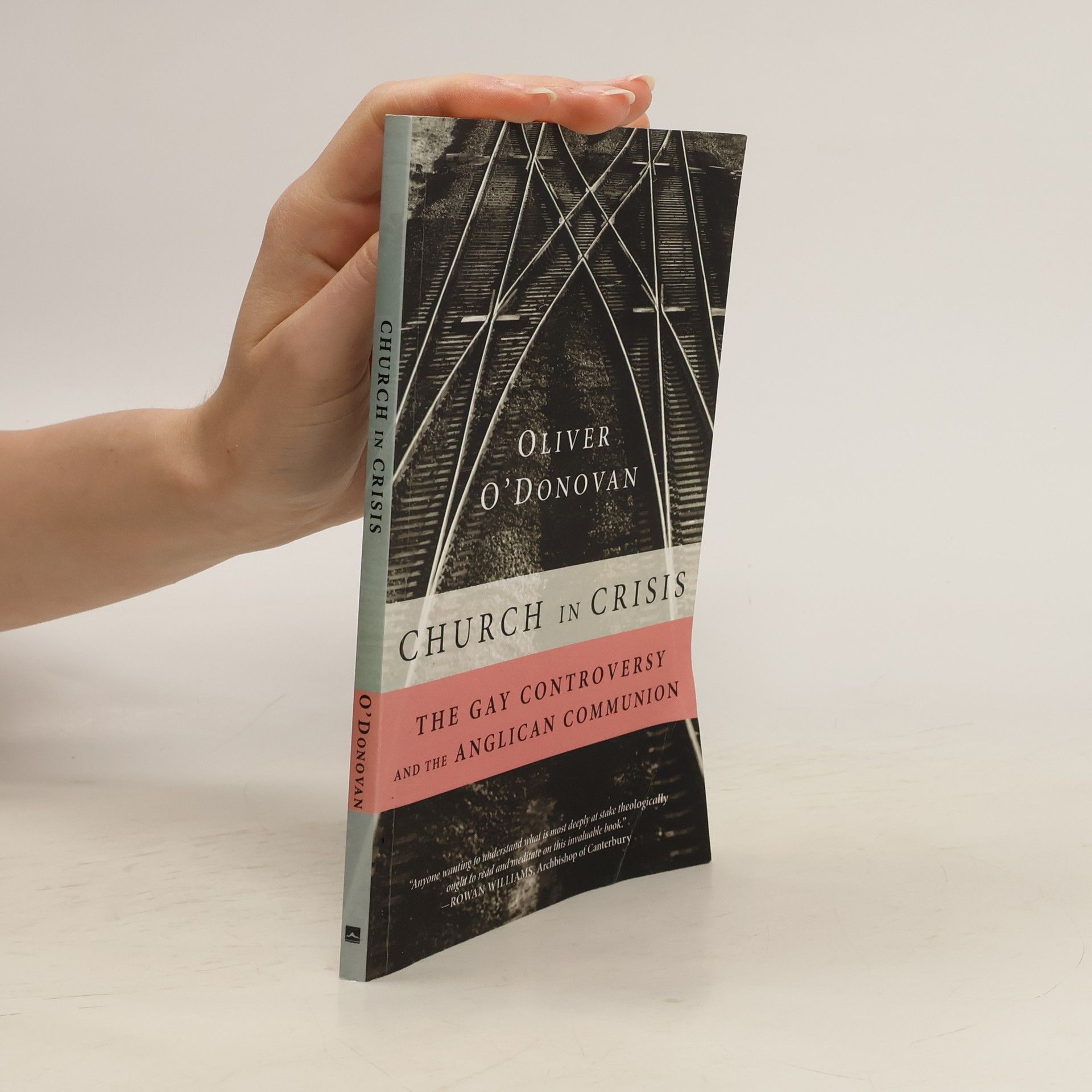The capstone lectures of esteemed ethicist Oliver O'Donovan What is the future of ethics? Oliver O'Donovan addresses a discipline in crisis in The Disappearance of Ethics. Based on the 2021 Gifford Lectures, this book contends that contemporary ethics has lost its object (good), frontier (time), and agent (person). O'Donovan traces the development of these concepts from Greek philosophy through early Christianity, the Enlightenment, and into the modern era. Engaging with a range of thinkers including Aristotle, Augustine of Hippo, Max Scheler, Karl Barth, and more, O'Donovan shows how ethics has lost its heart and how the field can regain its purpose. He completes his lectures by integrating theology and philosophy to recover ethics. Contemplating theological concepts such as creation, divine law, and justification undergirds ethics by generating "existential wonder." With characteristic warmth and scholarly precision, O'Donovan reinvigorates ethical argument with theological insight. Scholars and students of Christian ethics will find his lectures equally provocative and inspiring.
Oliver O'Donovan Book order (chronological)
Oliver O'Donovan is a distinguished scholar recognized for his profound contributions to Christian ethics. His work delves into the complexities of moral inquiry within a Christian framework, offering thoughtful considerations on ethical dilemmas. Beyond ethics, O'Donovan has also significantly impacted political theology, exploring the intersection of religious thought and political order across historical and contemporary contexts. His approach is marked by rigorous intellectual analysis and a commitment to bridging theological principles with practical and political realities.





Finding and Seeking
- 249 pages
- 9 hours of reading
This is the second of three volumes in Oliver O Donovan s masterful Ethics as Theology project. In his first volume -- Self, World, and Time -- O Donovan discusses Christian ethics as an intellectual discipline in relation to the humanities, especially philosophy, theology, and behavioral studies, and in relation to the Christian gospel. In Finding and Seeking O Donovan traces the logic of moral thought from self-awareness to decision through the virtues of faith, hope, and love. Blending biblical, historico-theological, and contemporary ideas in its comprehensive survey, this second volume continues O Donovan s splendid study in ethics as theology and adds significantly to his previous theoretical reflection on Christian ethics.
Self, World and Time
- 138 pages
- 5 hours of reading
Self, World, and Time takes up the question of the form and matter of Christian ethics as an intellectual discipline. What is it about? How does Christian ethics relate to the humanities, especially philosophy, theology, and behavioral studies? How does its shape correspond to the shape of practical reason? In what way does it participate in the proclamation of the gospel of Jesus Christ? Oliver O'Donovan discusses ethics with self, world, and time as foundation poles of moral reasoning, and with faith, love, and hope as the virtues anchoring the moral life. Blending biblical, historico-theological, and contemporary ideas in its comprehensive survey, Self, World, and Time is an exploratory study that adds significantly to O'Donovan's previous theoretical reflections on Christian ethics.
Church in crisis. The Gay Controversy And The Anglican Communion
- 123 pages
- 5 hours of reading
What if the challenge gay men and women present the church with is not emancipatory but hermeneutic? Suppose that at the heart of the problem there is the magna quaestio, the question about the gay experience, its sources and its character, that gays must answer for how this form of sensibility and feeling is shaped by its social context and how it can be clothed in an appropriate pattern of life for the service of God and discipleship of Christ? But suppose, too, that there is another question corresponding to it, which non-gay Christians need to how and to what extent this form of sensibility and feeling has emerged in specific historical conditions, and how the conditions may require, as an aspect of the pastoral accommodation that changing historical conditions require, a form of public presence and acknowledgment not hitherto known? These two questions come together as a single how are we to understand together the particularity of the age in which we are given to attest God's works?
The Just War Revisited
- 150 pages
- 6 hours of reading
Leading political theologian Oliver O'Donovan takes a fresh look at traditional moral arguments about war. schovat popis